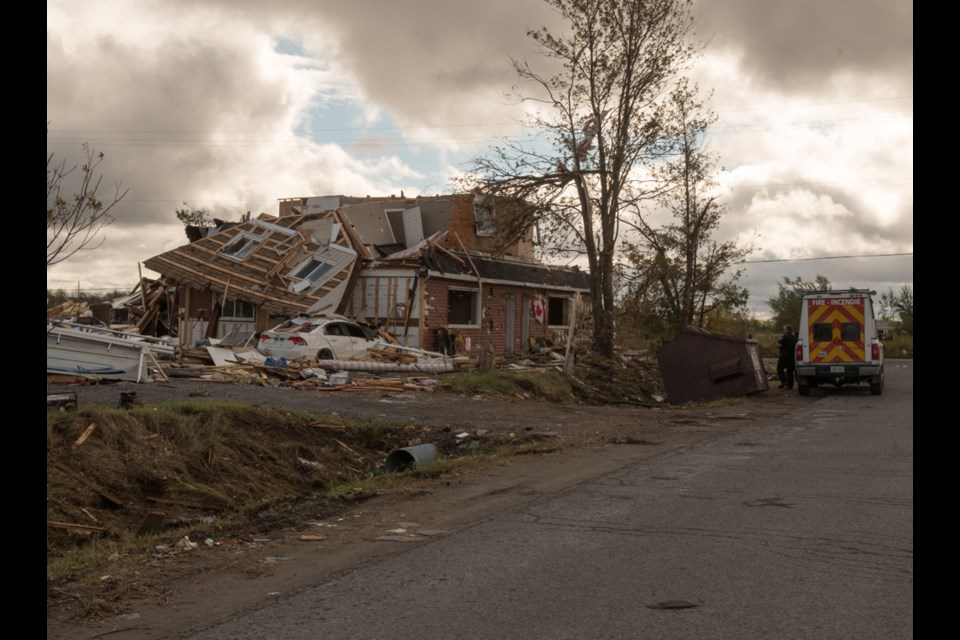I’ve just returned from the disaster that Hurricane Florence brought to the Ottawa area. It created two tornados, with one blasting through with winds of 265 kilometres per hour. That’s enough to rip a roof off or yank the walls off homes—and it did just that. Look at my photos above.
I joined an experienced disaster team that helped manage volunteers from across the country with primary clean up.
The tornados’ carved a path of destruction through Ottawa, leaping around the west end of the city and into Gatineau across the Ottawa River. Dozens of homes were uninhabitable, with roofs gone, garages collapsed, and walls pulled off as though made from cardboard and tossed into neighbours’ yards. Many homes have already been torn down and will need to be rebuilt. All that is left today is a cement pad. Others will take months to repair fully.
Each night I reflected on my day while shaking out pieces of wood hiding in the cuff of my pants from chainsaw cuttings.
It was a different experience for me. I’ve been around some 50 different emergencies—disasters, earthquakes, coups, tsunamis, floods, famines, wars and rumours of wars—but never in Canada. And rarely in a place where people are reasonably well off.
While I came to offer practical help, nearly everyone wanted to talk. I learned that sometimes the best aid is to put your gloves down and open your ears. It’s part of the grieving process.
Survivors wanted to tell me about their experience—the tornado, what happened, how their house used to look. “In 10 seconds, my life changed,” observed one woman as we viewed a back room that had collapsed into her small yard, now a tangle of gnarled pine trees, fragments of wood and twisted garden furniture. It took 20 people a full day to drag the debris to a 10-foot high pile.
It soon became apparent that part of our job was to listen. We heard stories of refuge in basements, loss of homes, the search for temporary accommodation and queries about when they can return.
Somehow, an attentive ear seems to give strength. When I asked one homeowner how she was doing, she looked at me and said, “I am empty.” It was perhaps the most profound thing I had heard, and it touched me deeply. It led to a long conversation with more listening.
Volunteers hugged, prayed, encouraged and consoled. We reassured survivors that we would do our best to give them one less thing to worry about. And we did. It’s amazing how a clean yard and a comforting word can make a difference.
Not all survivors were as depressed as one might expect. One young man who was emptying his house said, “It’s just stuff. We are safe, and that’s all that counts.” His house was to be torn down the next day.
Volunteers came from across the province. Many were church groups, others were random people from the capital region. Some companies gave their staff time off to volunteer. Literally thousands of people made a difference in the lives of fellow Canadians.
Don’t get me wrong—practical help is critical. But for me, this was a reminder that while you’re trying to get aid out, the human factor is just as important for recovery. That is why many aid organizations also focus on psychosocial support during disasters. After all, man and woman do not live by bread alone.
